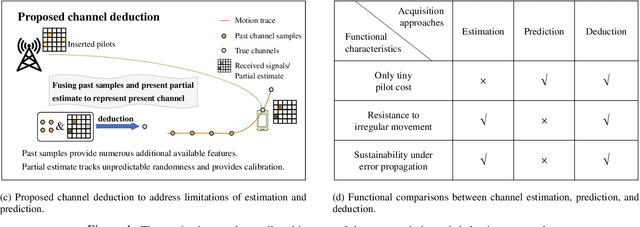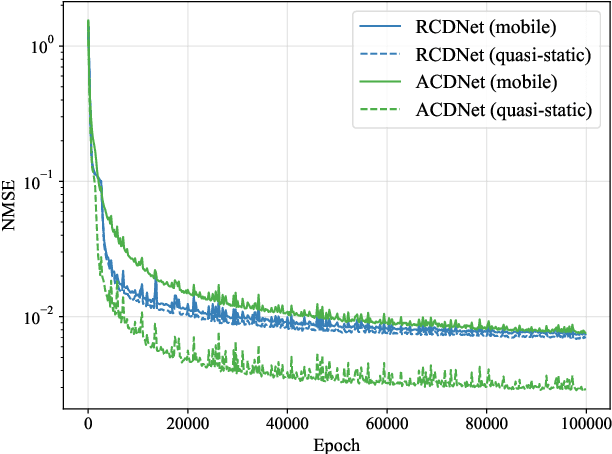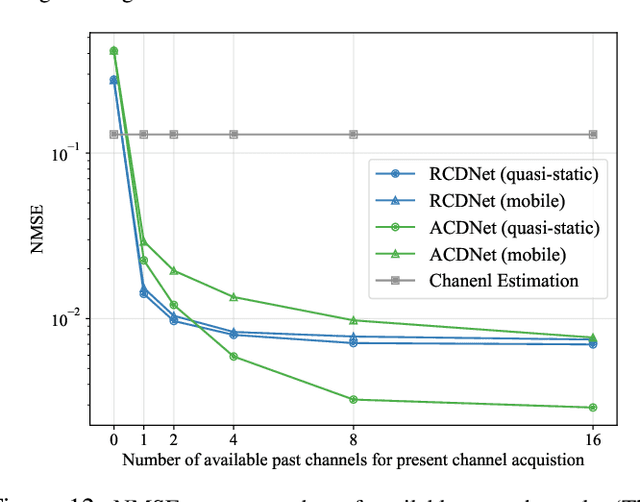Channel Deduction: A New Learning Framework to Acquire Channel from Outdated Samples and Coarse Estimate
Paper and Code
Mar 28, 2024



How to reduce the pilot overhead required for channel estimation? How to deal with the channel dynamic changes and error propagation in channel prediction? To jointly address these two critical issues in next-generation transceiver design, in this paper, we propose a novel framework named channel deduction for high-dimensional channel acquisition in multiple-input multiple-output (MIMO)-orthogonal frequency division multiplexing (OFDM) systems. Specifically, it makes use of the outdated channel information of past time slots, performs coarse estimation for the current channel with a relatively small number of pilots, and then fuses these two information to obtain a complete representation of the present channel. The rationale is to align the current channel representation to both the latent channel features within the past samples and the coarse estimate of current channel at the pilots, which, in a sense, behaves as a complementary combination of estimation and prediction and thus reduces the overall overhead. To fully exploit the highly nonlinear correlations in time, space, and frequency domains, we resort to learning-based implementation approaches. By using the highly efficient complex-domain multilayer perceptron (MLP)-mixer for crossing space-frequency domain representation and the recurrence-based or attention-based mechanisms for the past-present interaction, we respectively design two different channel deduction neural networks (CDNets). We provide a general procedure of data collection, training, and deployment to standardize the application of CDNets. Comprehensive experimental evaluations in accuracy, robustness, and efficiency demonstrate the superiority of the proposed approach, which reduces the pilot overhead by up to 88.9% compared to state-of-the-art estimation approaches and enables continuous operating even under unknown user movement and error propagation.
 Add to Chrome
Add to Chrome Add to Firefox
Add to Firefox Add to Edge
Add to Edge